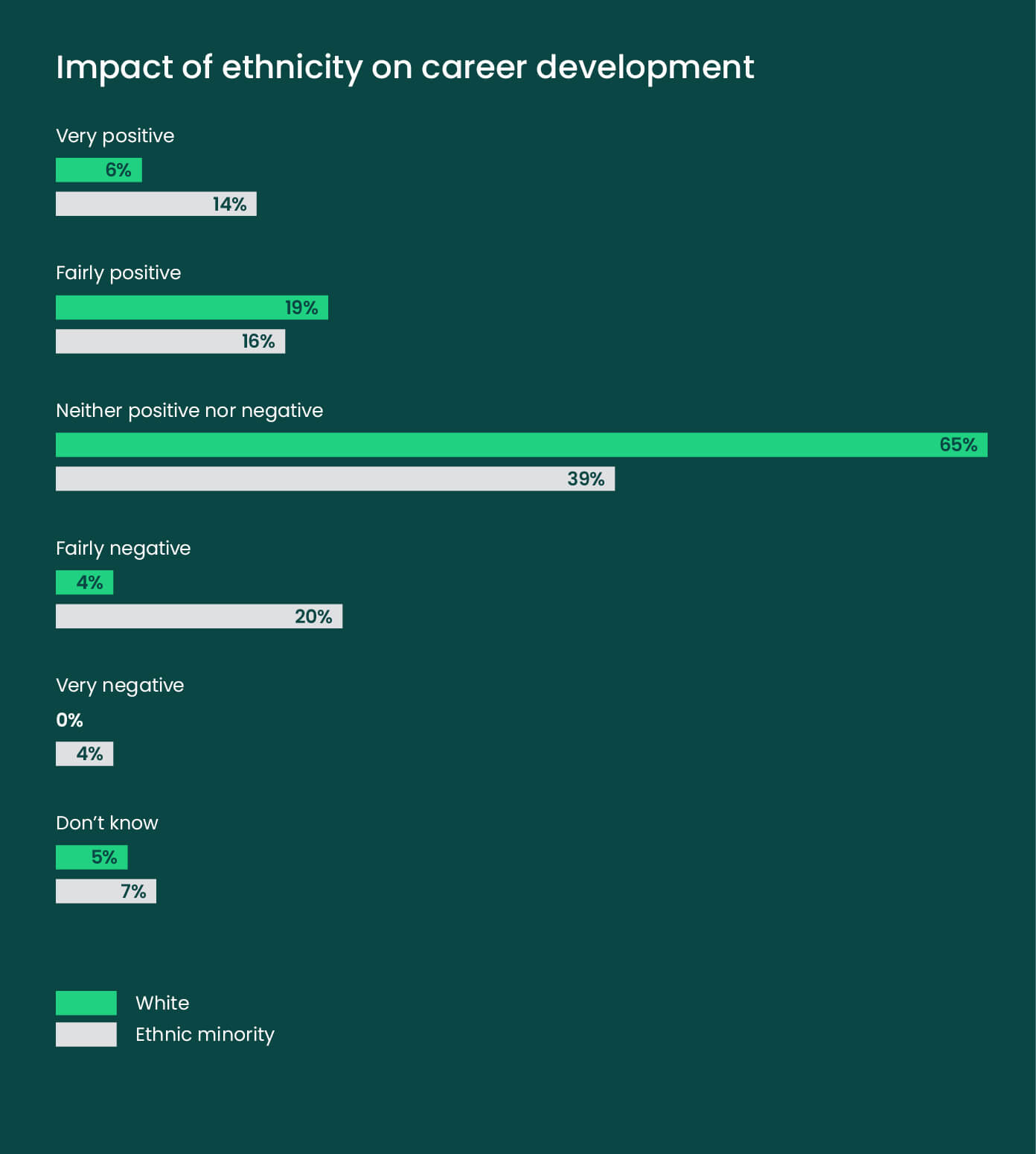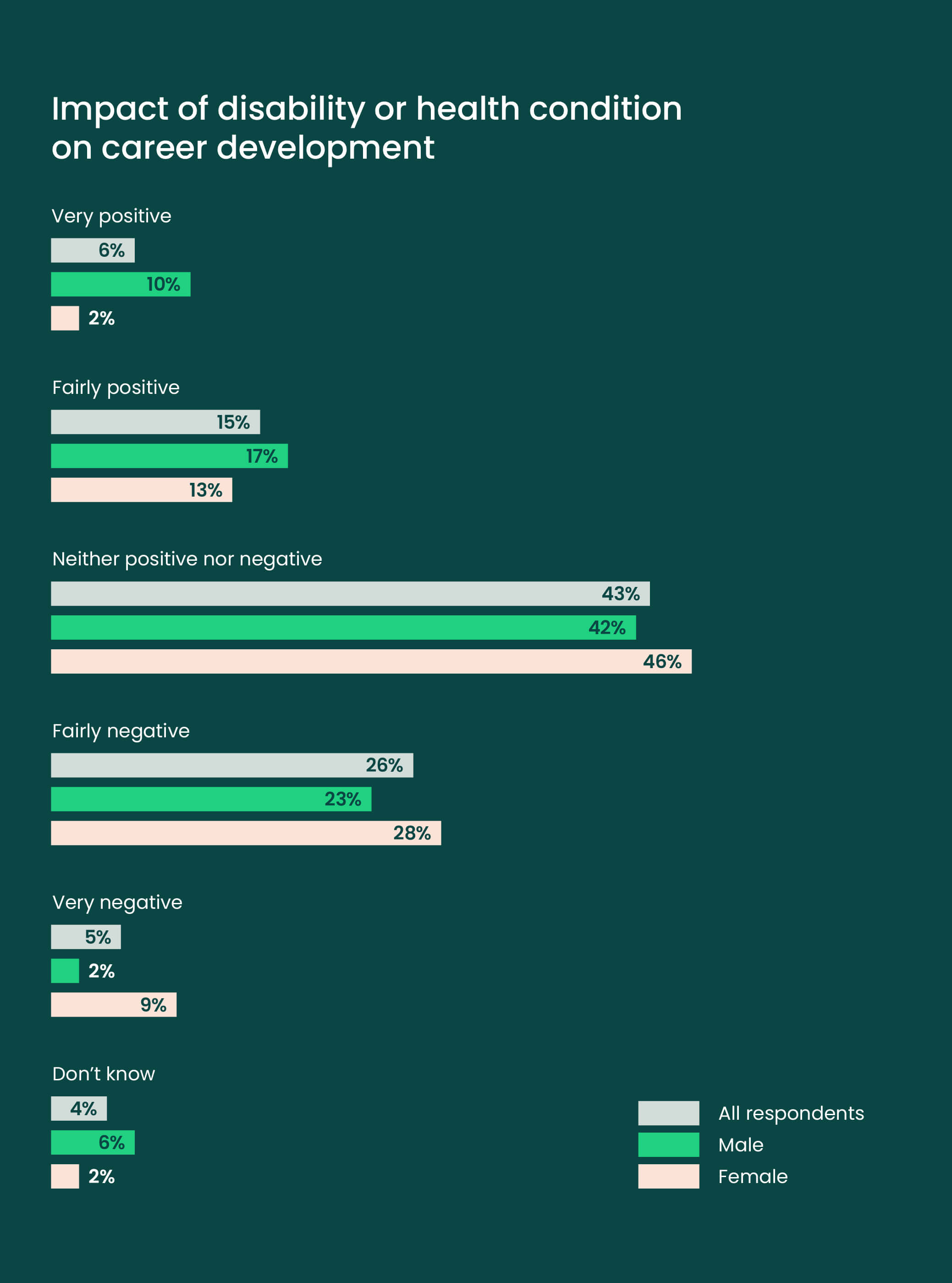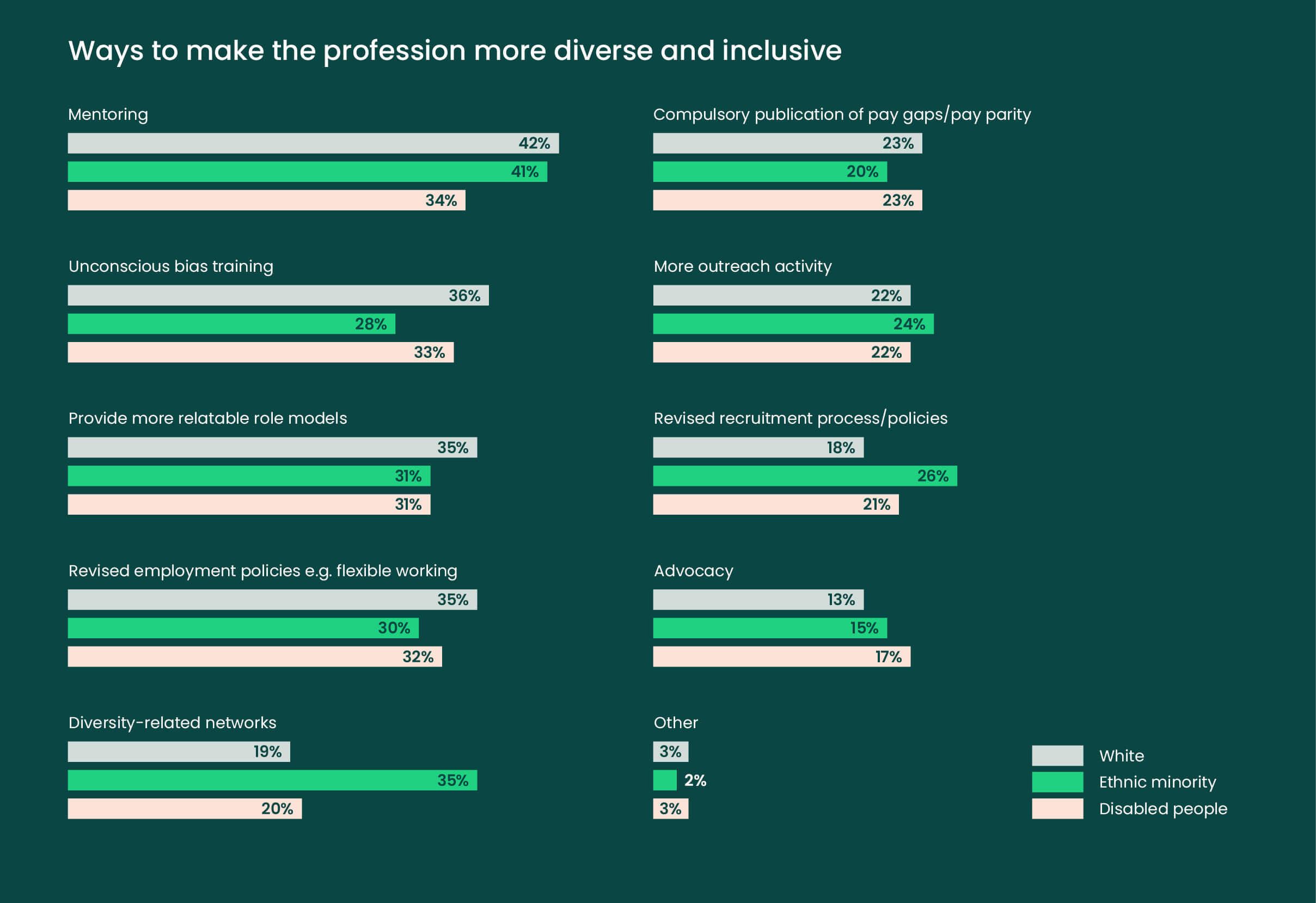| Diversity and inclusion in project management
Ensuring project management continues to work on improving its levels of diversity and inclusion is key to ensuring that it reflects wider society, bringing in new talent from all backgrounds to develop a stronger profession with a broad range of voices.
The results this year are encouraging, with the number of people from ethnic minorities and disabled people continuing to increase, with 20% of new recruits now made up of ethnic minorities. This compares favourably with the overall proportion of ethnic minorities in England and Wales of 18.3%11 . However, there is still a lot of work to be done in making the profession more diverse and inclusive at all levels in all sectors. One of the key ways that can be done is mentoring, along with unconscious bias training and providing more relatable role models.
At APM we regard improving levels of diversity and inclusion as one of the key challenges the profession faces and, along with this survey, we have a number of resources available to help organisations improve their initiatives and policies around this vital area.
11 ONS, Census 2021, released November 2022

| Make-up of the profession by ethnicity
The range and proportion of people from ethnic minorities within the project management profession is something we have tracked for a number of years, so we can provide an accurate snapshot of how our diversity and inclusion work is changing the ethnic make-up of the industry.
This year, the results show a continuing move upwards in terms of the number of people from ethnic minorities, with the total amount increasing from 15% in 2021 to 20% in 2023, a proportion that’s continued to rise since 2020.
Looking at the individual demographics, there’s a marked increase in the number of people identifying as Asian/Asian British, which has risen to 11% from 8% in 2021, as well as Black/African/Caribbean/Black British, which is now 5%.
As you may expect, it’s the younger generation that’s showing the greatest proportion of people from ethnic minorities, making up 36% of those who have been in the profession for two years or less, and 22% of those with three to five years’ of experience. This is an extremely positive sign that the industry is changing in make-up and becoming more attractive to ethnic minorities, with their increasing presence making the profession even more appealing to people of all ethnic backgrounds.
However, while the number of ethnic minorities is rising, the pay gap between them and their white counterparts also appears to be increasing. This year, their average salary has dropped to £35,000, far below the overall average of £47,500 and white average of £52,500. The answer to this troubling drop could lie in the large increase of those ethnic minorities who have been in the sector for five years or less compared to the previous time the research was done, but there is clearly more work to be done in closing this gap.
| Impact of ethnicity on career development
The issue of how a project professional’s ethnicity affects their career development is one that’s important not only for the individual but for the project profession as a whole. Seeing the success of ethnic minorities at all levels of project management encourages young ethnic minorities to regard the profession as welcoming and nurturing, as well as increasing the amount of senior voices from different backgrounds.
This year, there’s an overall positive feeling among ethnic minorities that their ethnicity has had a positive impact on their professional development – an amount about equal to that of white people – with 24% stating a negative impact. Looking at the demographics, the proportion of Asian/Asian British people with a positive feeling is almost double that of those that are more negative. But for the Mixed/Multi community, the negative feelings far outweigh the positive.

| Project professionals with a disability or long-term health condition
The Equality Act 2010 describes a disabled person as, “Anyone who has a physical or mental impairment, which has a substantial and long-term adverse effect on their ability to perform normal day-to-day activities.” This year, the amount of survey respondents with a disability has increased slightly, from 11% in 2021 to 14%.
When it comes to professional development, a third of those with a disability feel that it’s had a negative impact on their career (31%), compared to a fifth who said it had a positive impact (21%) – something that the profession clearly needs to address.
Going into more detail, women were more likely than men to feel their disability impacted them negatively (37% vs 25%), while ethnic minority professionals were more likely than their white counterparts to say that their disability had a positive impact on their progression (42% vs 13%).
🕮 How to recruit a diverse project team: Inclusive hiring practices and tips

| How diverse and inclusive is the profession?
The perception of those working in the profession of how diverse and inclusive project management is, is a key question that provides a ‘real-world’ assessment of the success of diversity and inclusivity work across the industry.
In previous surveys, those with an ethnic minority background were significantly less likely to consider the project profession to be diverse than their white colleagues. In both the 2020 and 2021 surveys, ethnic minorities gave a mean score of 5.93 when asked how diverse they think the profession is (where zero is not at all and 10 is completely). However, this year, that score has risen to 6.71 – slightly above that of white respondents (6.41).
While that certainly looks like a shift in perception, the decrease in the amount of ethnic minorities declaring no strong feeling either way (38% in 2021 to 31% in 2023) demonstrates the increasingly polarised nature of the debate.
Regarding inclusivity, 56% of professionals now feel that the profession is inclusive. While this is certainly encouraging and testament to the work the sector is doing in the area, there is always room for improvement.
| Ways to make the profession more diverse and inclusive
It’s vital that all businesses and organisations continually look at their work in diversity and inclusion to ensure that the make-up of their workforce reflects that of general society. Among the ways the sector can do this, mentoring remains the number one choice for ethnic minorities and disabled people, a fact that repeats the findings of the past two surveys.
Other popular methods include unconscious bias training, providing more relatable role models, and revised employment policies. Of these, disabled professionals prefer unconscious bias training, while ethnic minority professionals would like to see more diversity networks set up, enabling them to inform, support and advance professionals of a similar ethnic background.
🎧 Why diversity and inclusion is the key factor of successful projects

| In summary: Keep improving for greater reward
The challenge of increasing diversity and inclusion is one that is complex with no easy solutions, and like other industries, the project management profession has a distinct lack of disabled people within its workforce. This lack of diversity and inclusion only discourages new talent from minority groups becoming aware of the profession and making the decision to join, which exacerbates the problem further.
This is something that we’re very aware of, and we continue to work hard in making the profession more diverse and inclusive, running a number of initiatives and programmes to improve awareness within the project management community and work with educational organisations to engage with young people from all backgrounds. In October 2022, we also held our first ever event to mark Black History Month, with the theme of ‘Accelerating Black Talent’.
This year’s survey certainly shows signs that the profession is improving its diversity and inclusion, particularly among the younger generation, but the overwhelming image of the profession is still white and able-bodied. We all need to do more to address this and make project management more appealing to ethnic minorities, the physically disabled, and neurodiverse.
Creating a more diverse and inclusive profession not only benefits the organisation through a broader skills base, increased innovation, and a wider range of ideas, but opens up the entire industry to new talent that it would otherwise have missed.

